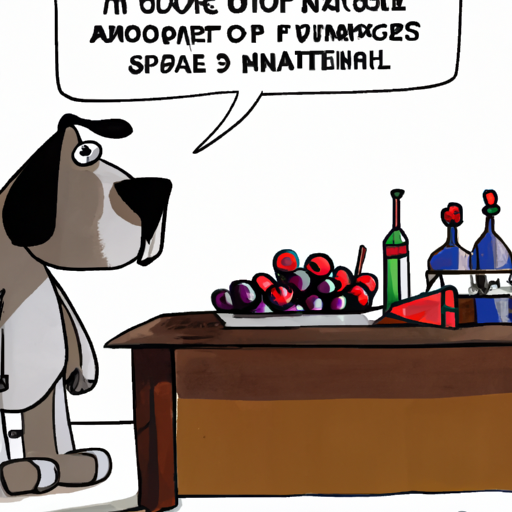Dogs are man’s best friend and loyal companions. As pet parents, ensuring their health and well-being is our responsibility. This includes providing them with a balanced diet and ensuring they avoid foods that could be harmful to them. Below, we delve into the details of what foods dogs should avoid.
Table of Contents
- Foods to Avoid
- Why these Foods are Harmful
- Alternatives to Harmful Foods
- Common Misconceptions
-
Frequently Asked Questions
-
Key Takeaways
- Dogs have different dietary requirements than humans
- Some foods that are safe for humans can be harmful or even fatal to dogs
- Always consult with a veterinarian before introducing new foods into your dog’s diet
Foods to Avoid
The following are foods that dogs should avoid:
- Chocolate
- Grapes and Raisins
- Onions and Garlic
- Xylitol (artificial sweetener)
- Alcohol
- Caffeine
- Avocados
- Macadamia Nuts
- Yeast Dough
- Dairy Products
This list is not exhaustive, and it’s important to always consult with a vet before introducing new foods into your dog’s diet.
Let’s explore why these foods are harmful to our dogs.
Why These Foods are Harmful
Chocolate, caffeine, and alcohol all contain substances that are toxic to dogs. These can cause vomiting, diarrhea, panting, abnormal heart rhythm, seizures, and in severe cases, death.
Grapes and raisins have been found to cause kidney failure in dogs. While the exact substance that causes the toxicity is currently unknown, it’s best to avoid these foods entirely.
Onions and garlic can cause damage to red blood cells, leading to anemia. This applies to all forms of these foods, cooked or raw, dried or powdered.
Xylitol, an artificial sweetener found in many products such as sugar-free gum, candy, and baked goods, can lead to liver failure and hypoglycemia (low blood sugar).
Avocados contain persin, a fungicidal toxin, which can cause vomiting and diarrhea in dogs.
Macadamia nuts can cause weakness, vomiting, tremors, and hyperthermia in dogs.
Yeast dough can rise and cause gas to accumulate in your dog’s digestive system. This can be painful and can cause the stomach or intestines to rupture.
Dairy products can cause digestive problems and trigger food allergies, leading to itching, diarrhea, and other symptoms.
Source: ASPCA’s List of People Foods to Avoid Feeding Your Pets
Alternatives to Harmful Foods
While we’ve covered what foods dogs should avoid, it’s also important to know what foods are safe for them. Dogs can enjoy a variety of fruits, vegetables, and meats that are beneficial to their health.
Here are some dog-friendly foods:
- Lean Meats: Cooked chicken, turkey, and fish are great sources of protein.
- Fruits and Vegetables: Apples, bananas, blueberries, carrots, cucumbers, and sweet potatoes are all safe for dogs.
- Rice and Pasta: These foods are good sources of energy and are very digestible.
Remember, moderation is key. Even safe foods can lead to obesity and other health issues if overfed.
Common Misconceptions
There’s a common misconception that dogs can eat anything humans can. This is far from the truth. Dogs have different nutritional needs and some human foods can be very harmful to them. It’s always best to consult with a veterinarian before introducing new foods into your dog’s diet.
Frequently Asked Questions
Q: Can dogs eat peanut butter?
A: Yes, but it should be free of xylitol, a common sweetener in many peanut butters.
Q: Is it safe for dogs to eat bones?
A: While dogs naturally chew on bones, some can be dangerous. Cooked bones can splinter and cause injuries.
Q: Can dogs eat eggs?
A: Yes, cooked eggs are safe and nutritious for dogs.
Q: Can dogs eat cheese?
A: In small quantities, cheese can be a great treat for dogs, unless they have lactose intolerance.
For more information about dog nutrition, check out these articles from OneTopDog:
- The Importance of a Balanced Diet for Dogs
- Common Dog Food Allergies and How to Handle Them
- Understanding Your Dog’s Dietary Needs
Remember, your furry friend relies on you for their health and well-being. Be sure to keep these harmful foods out of their reach and always consult with a vet for any dietary changes.



